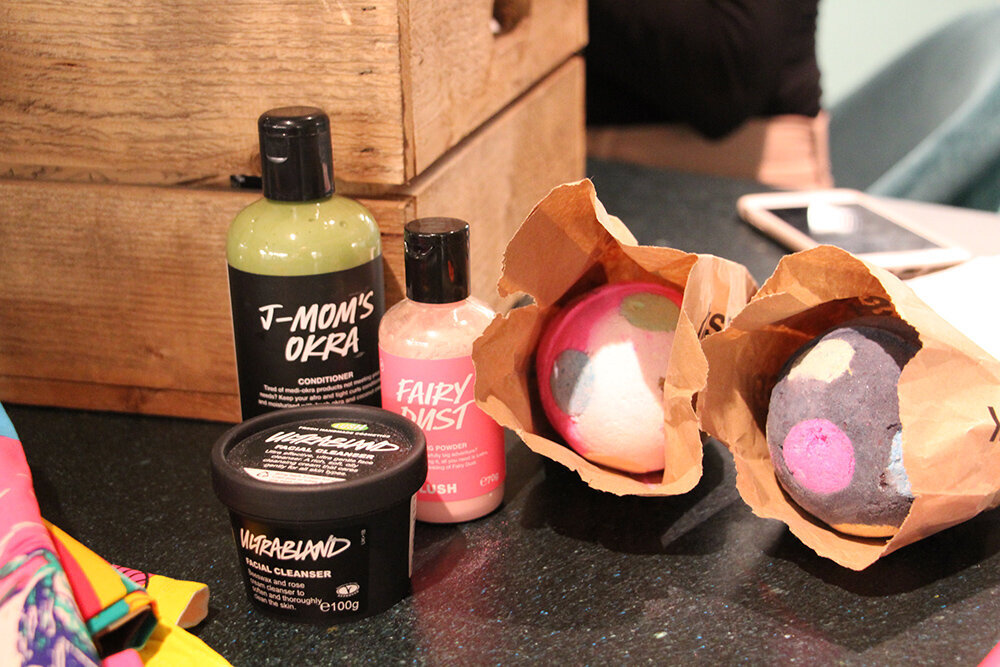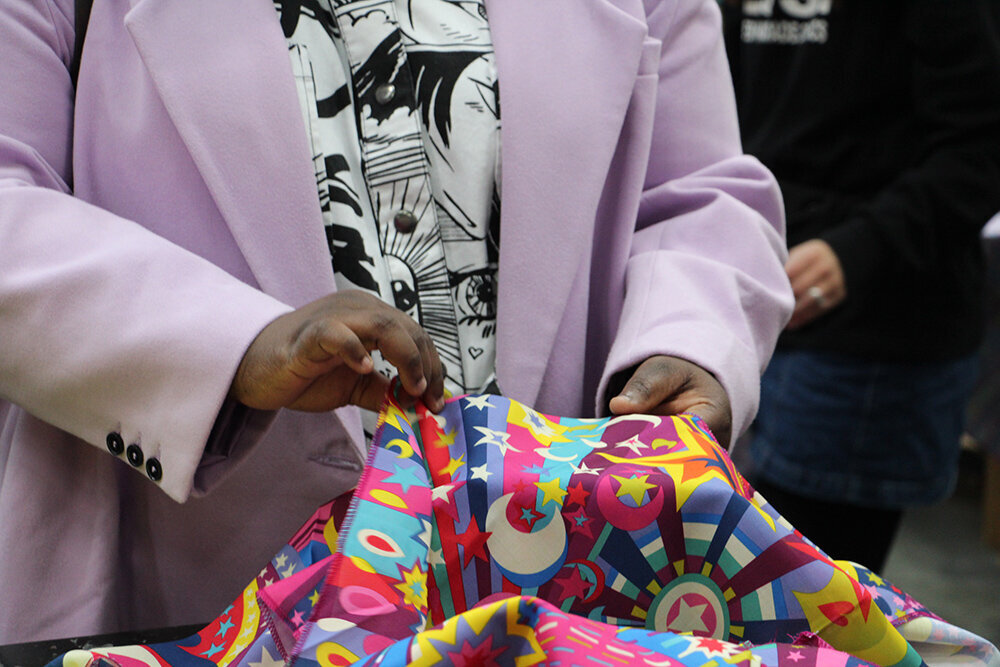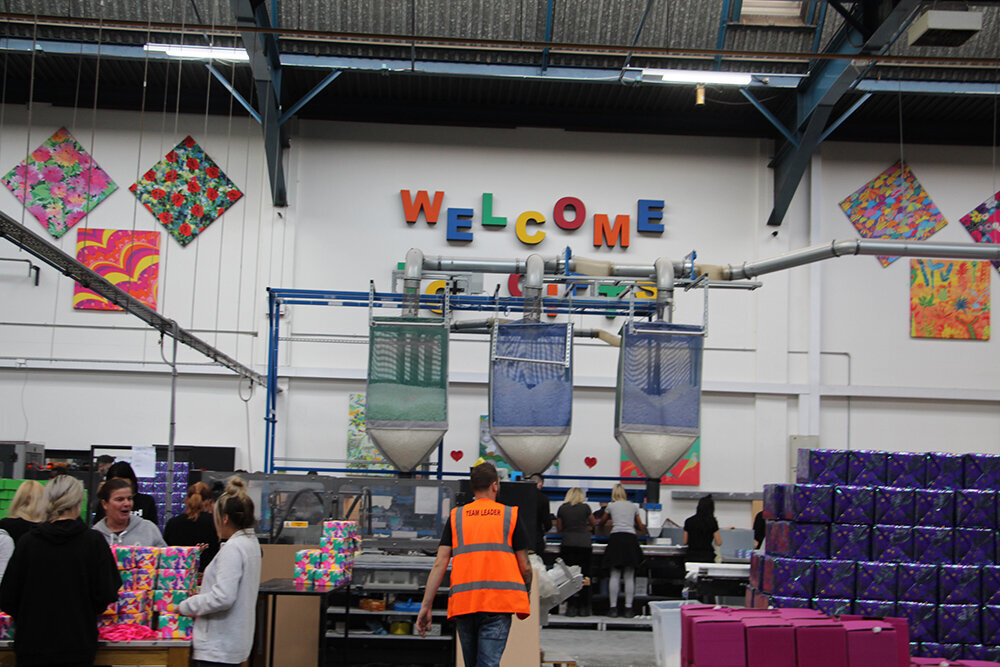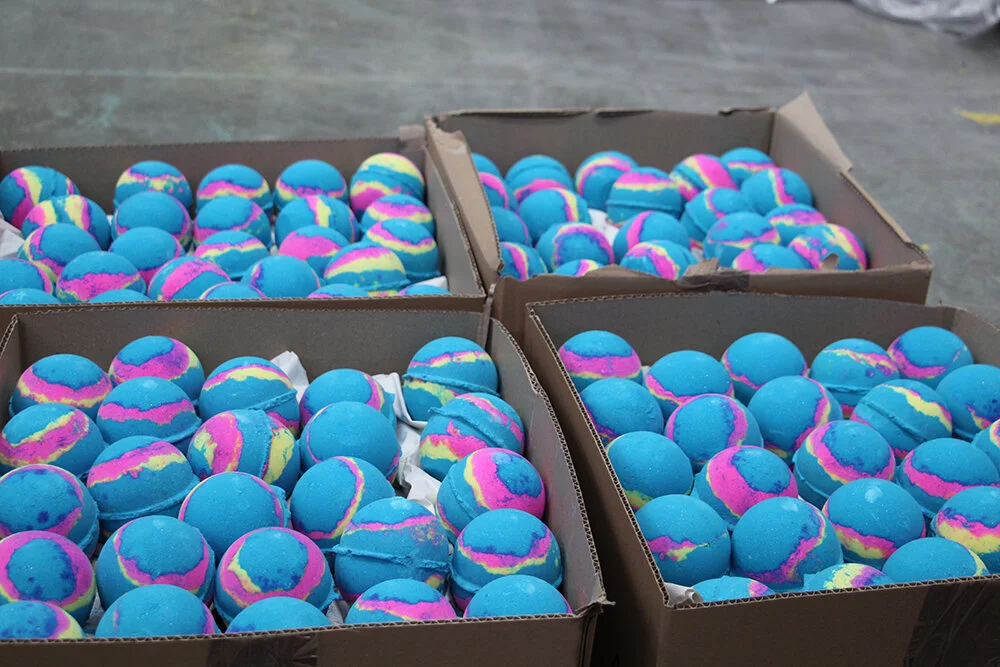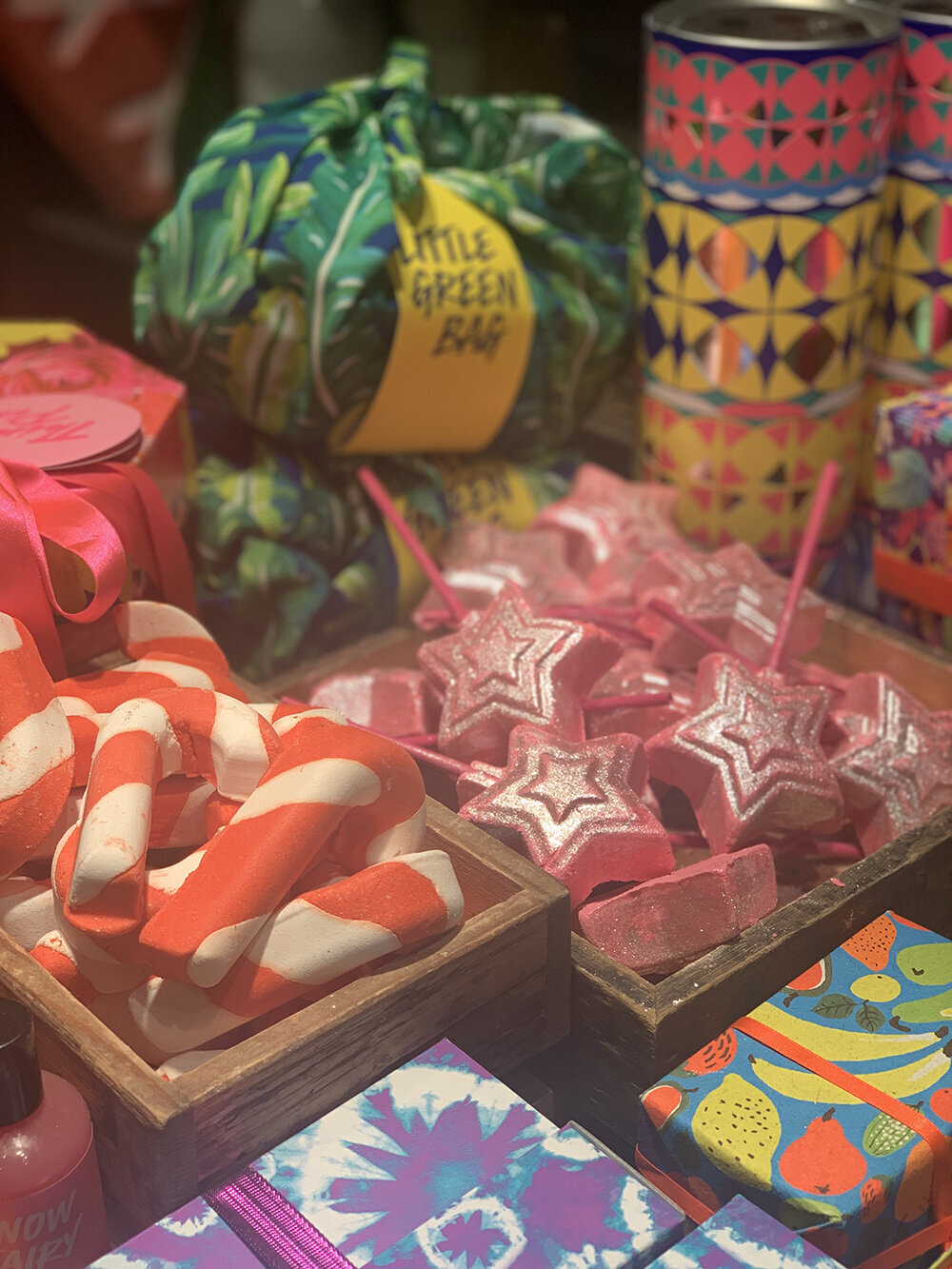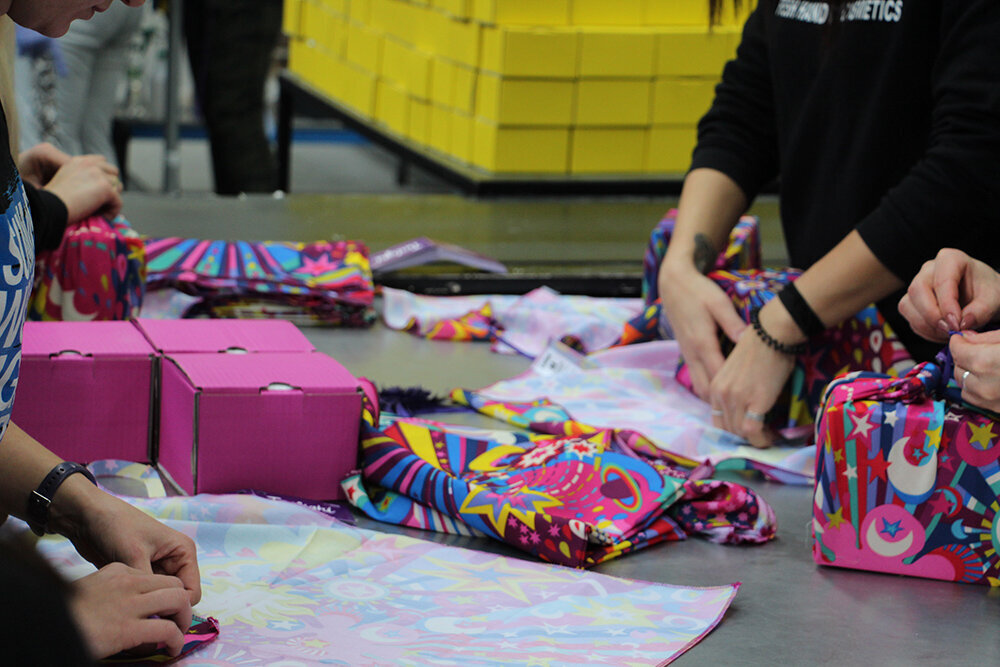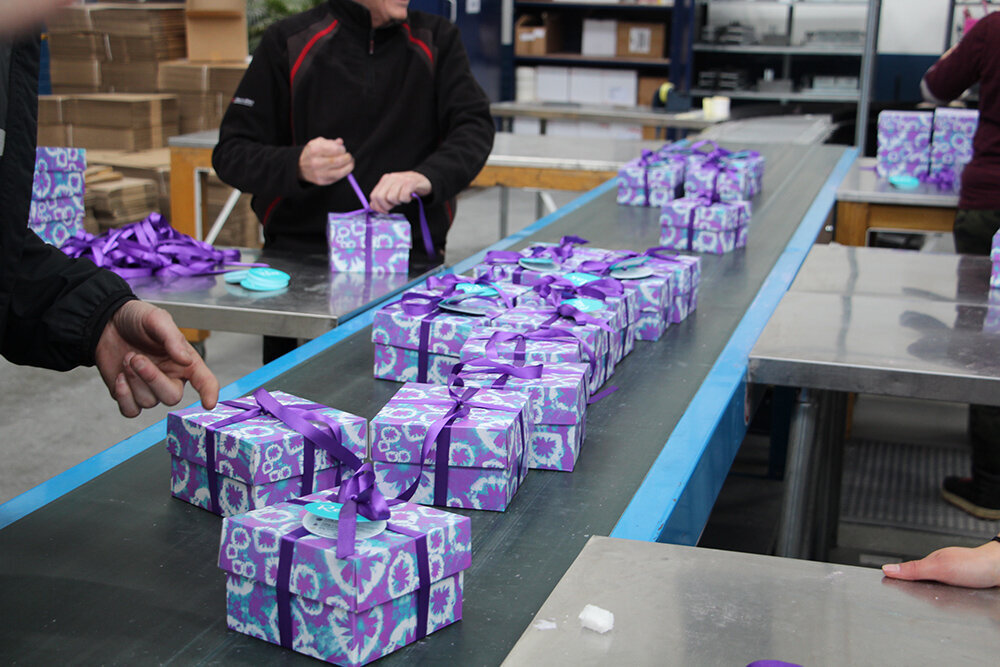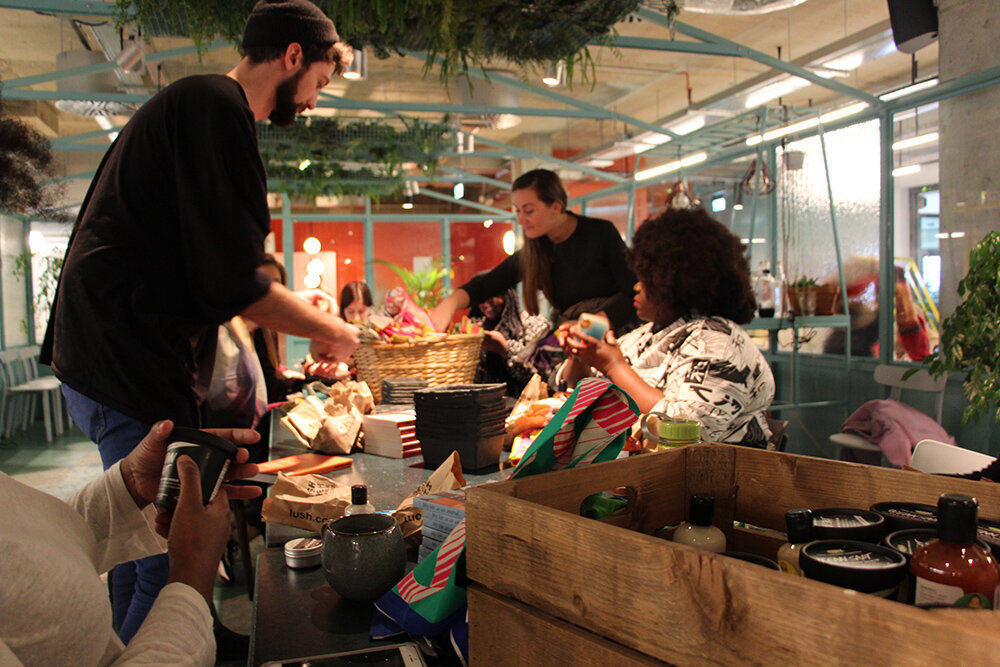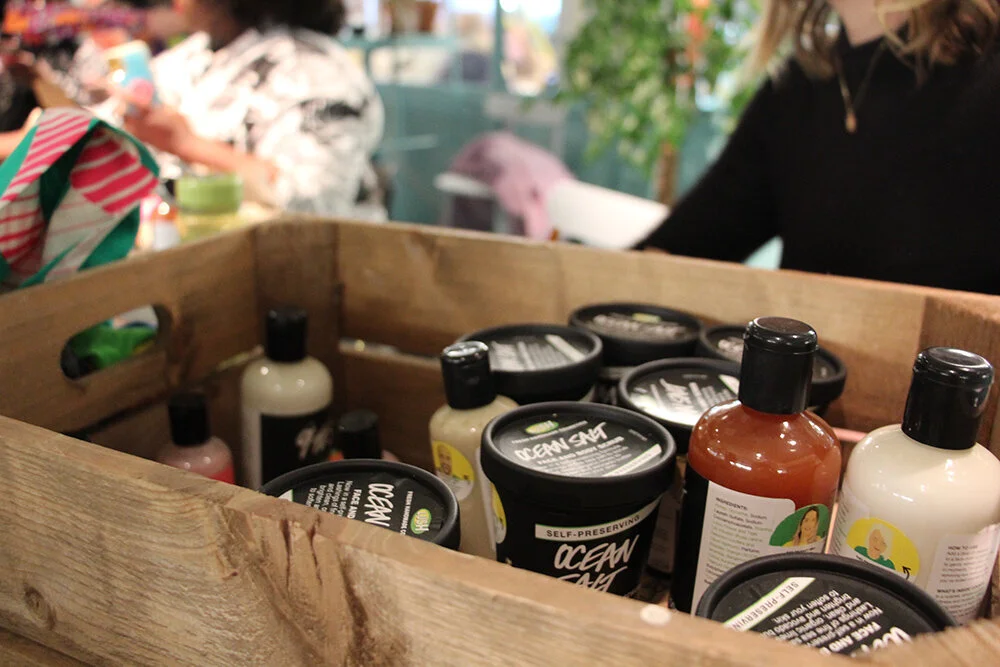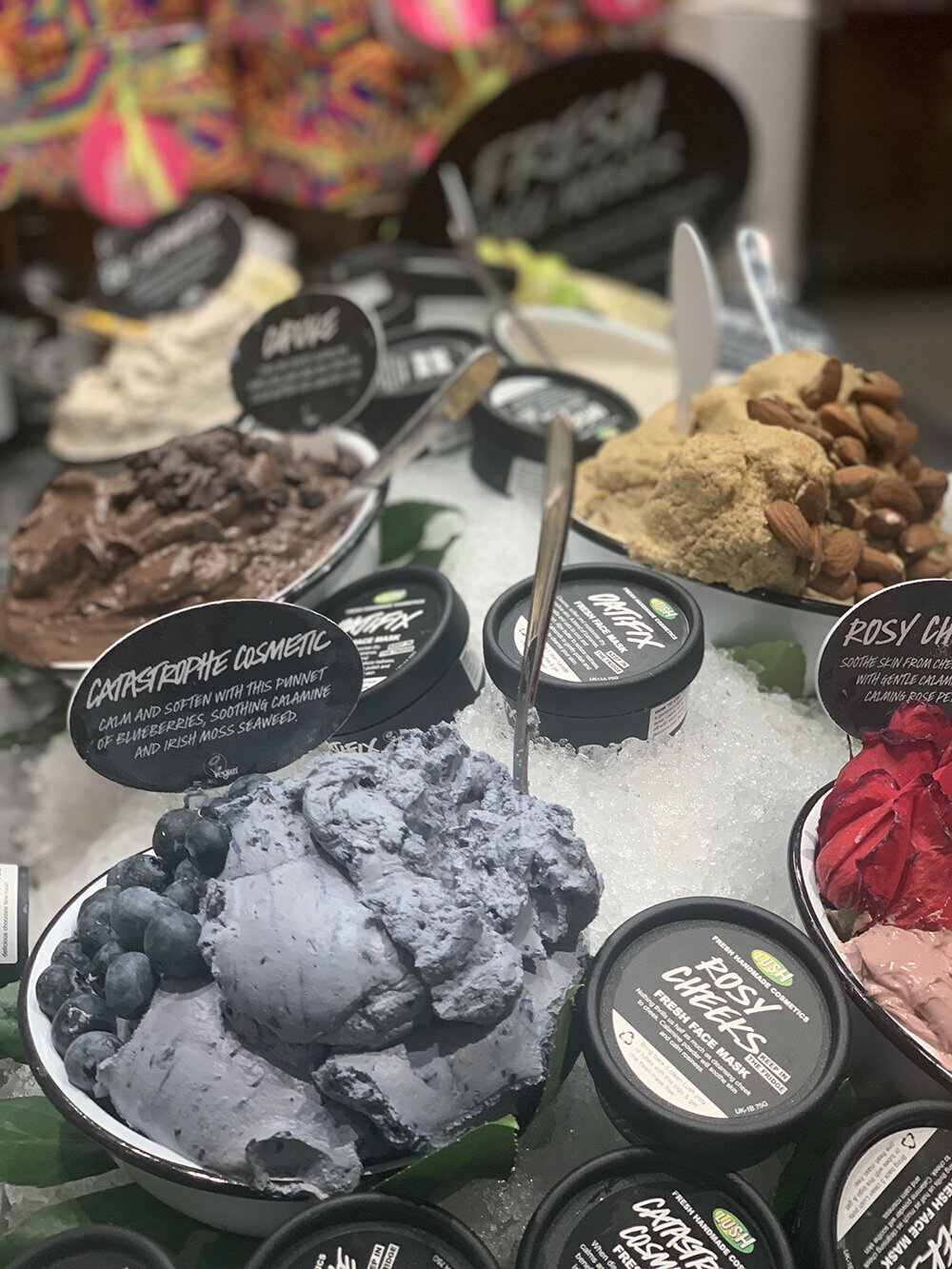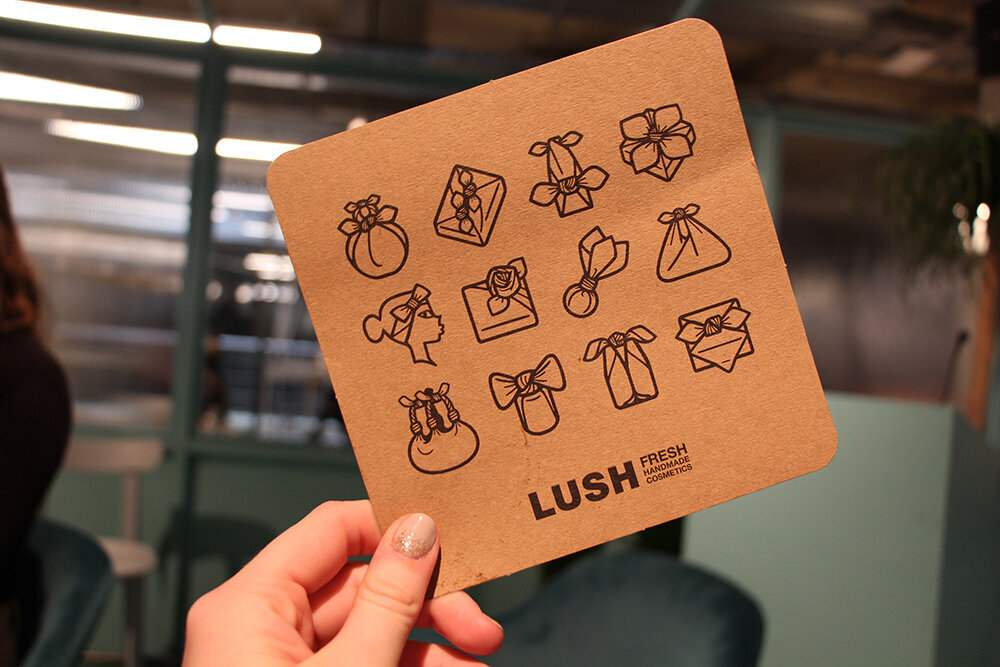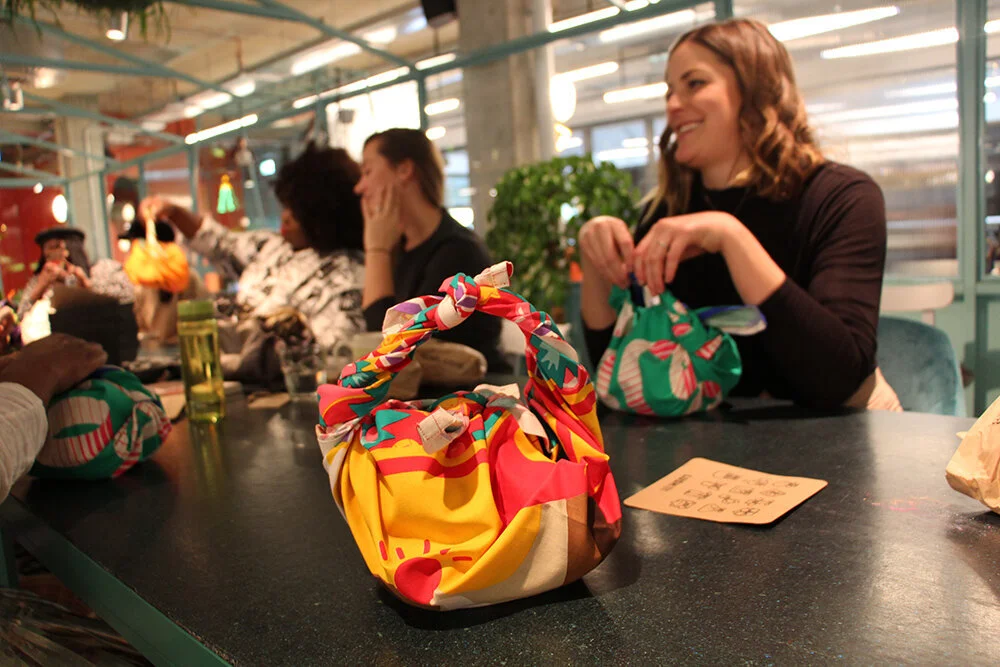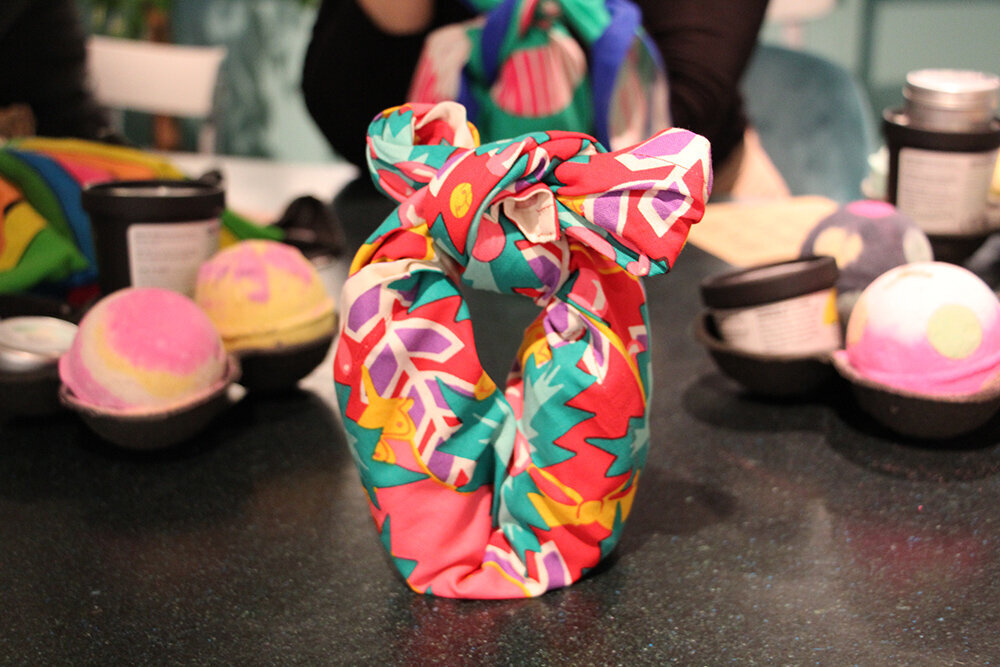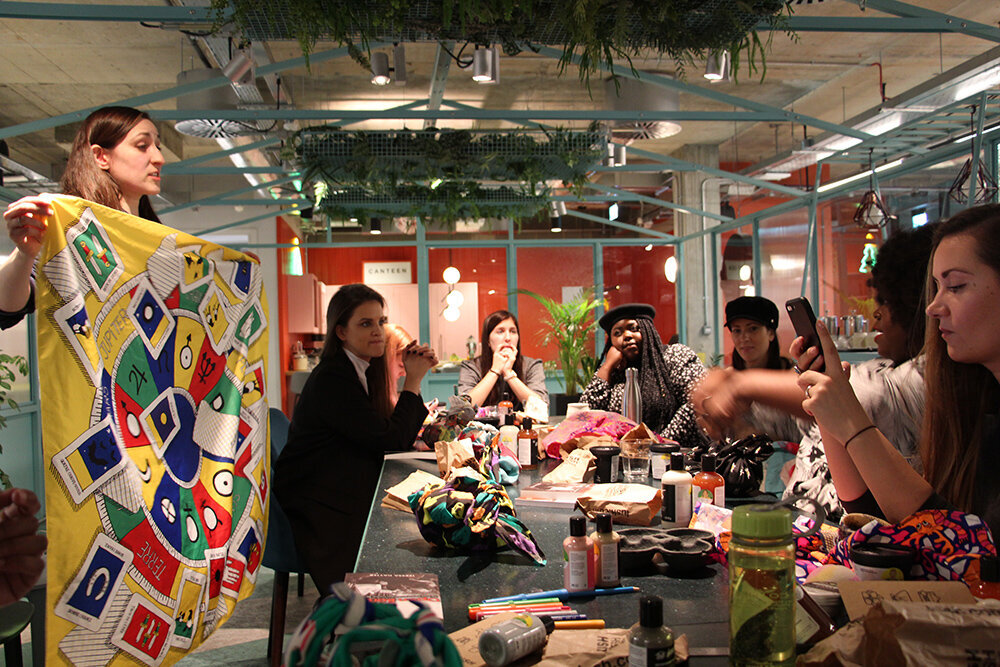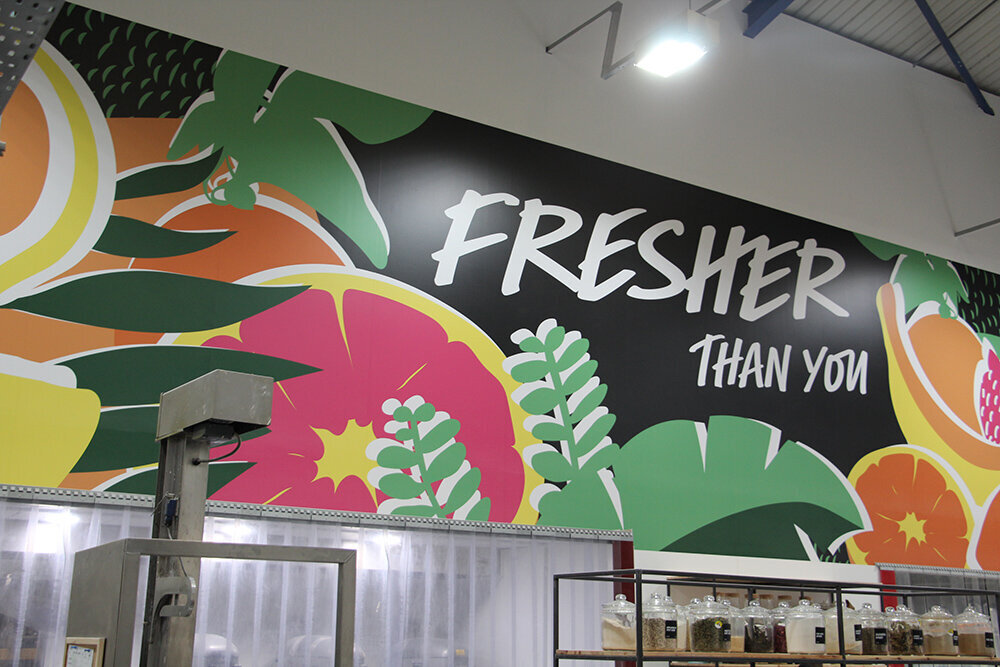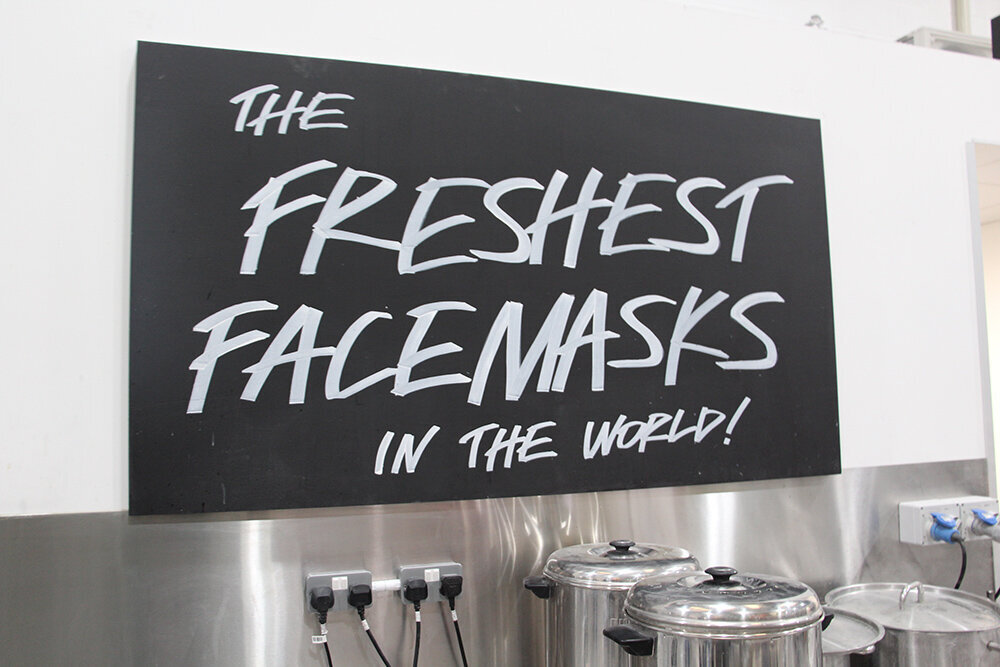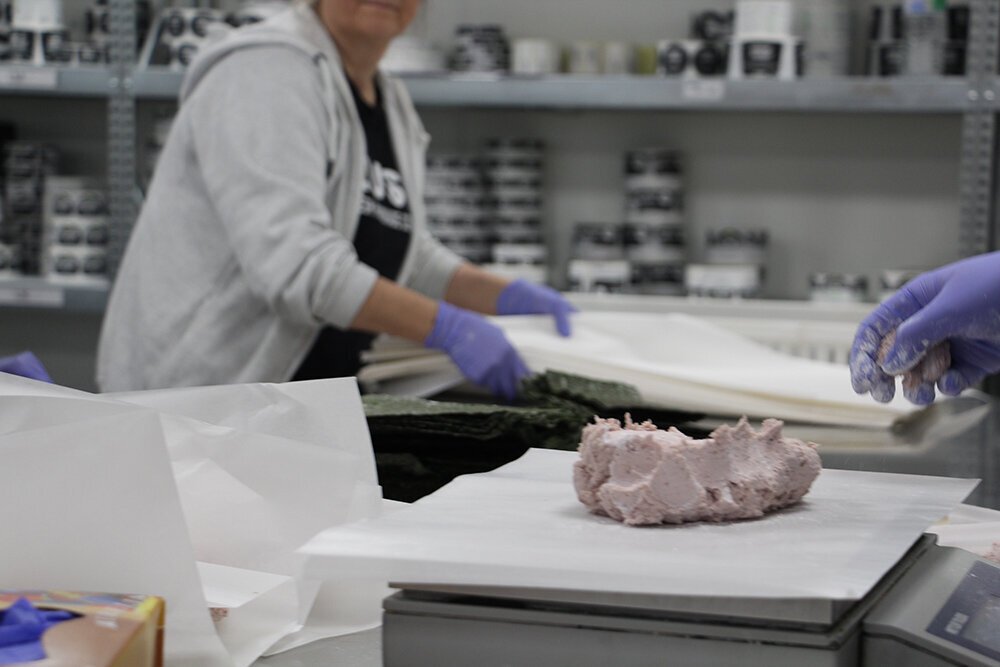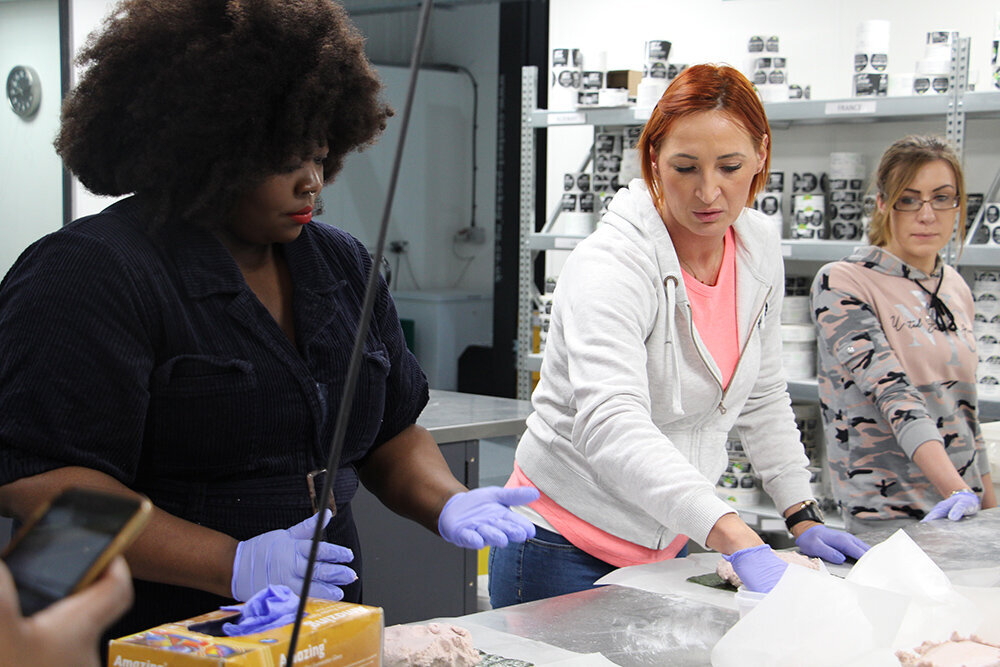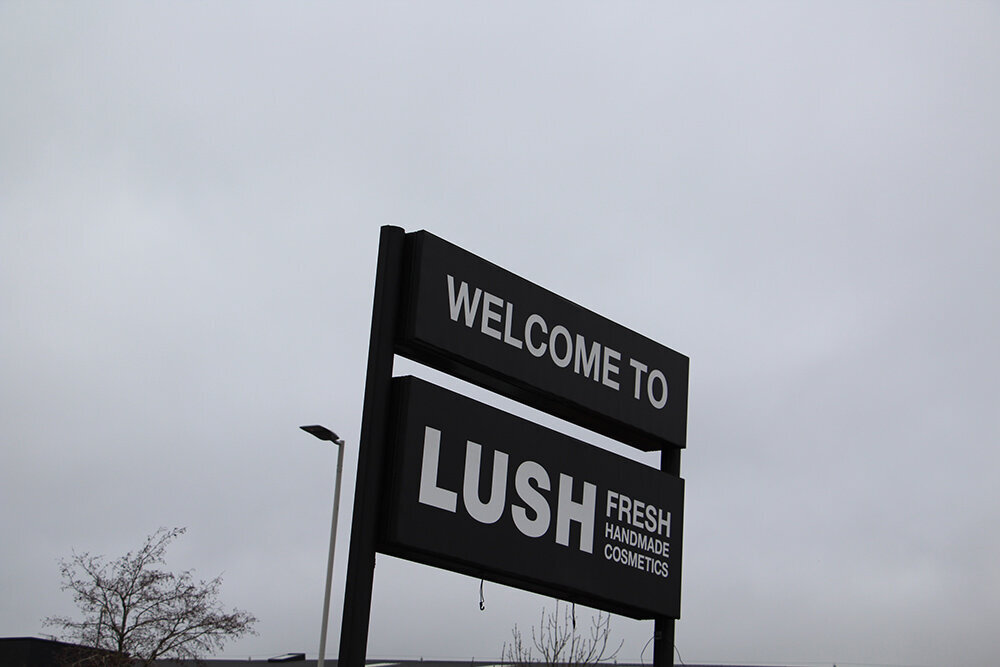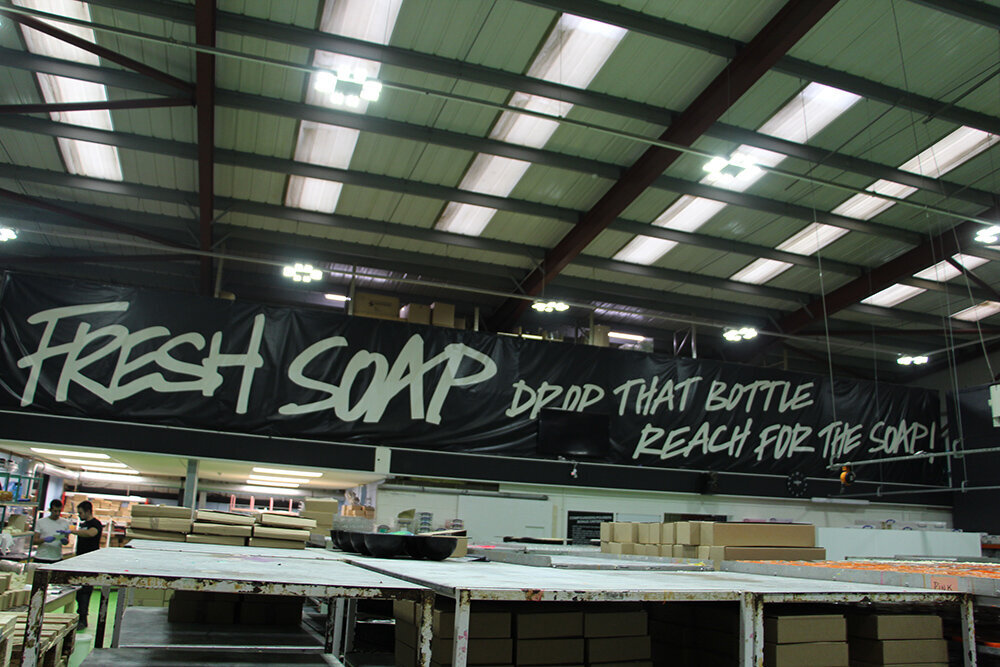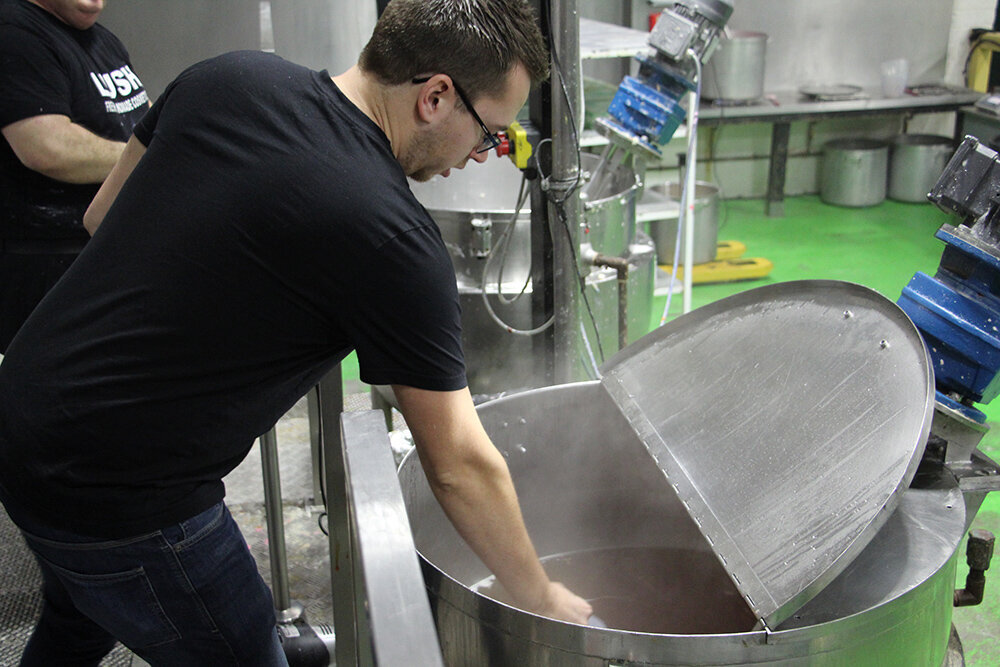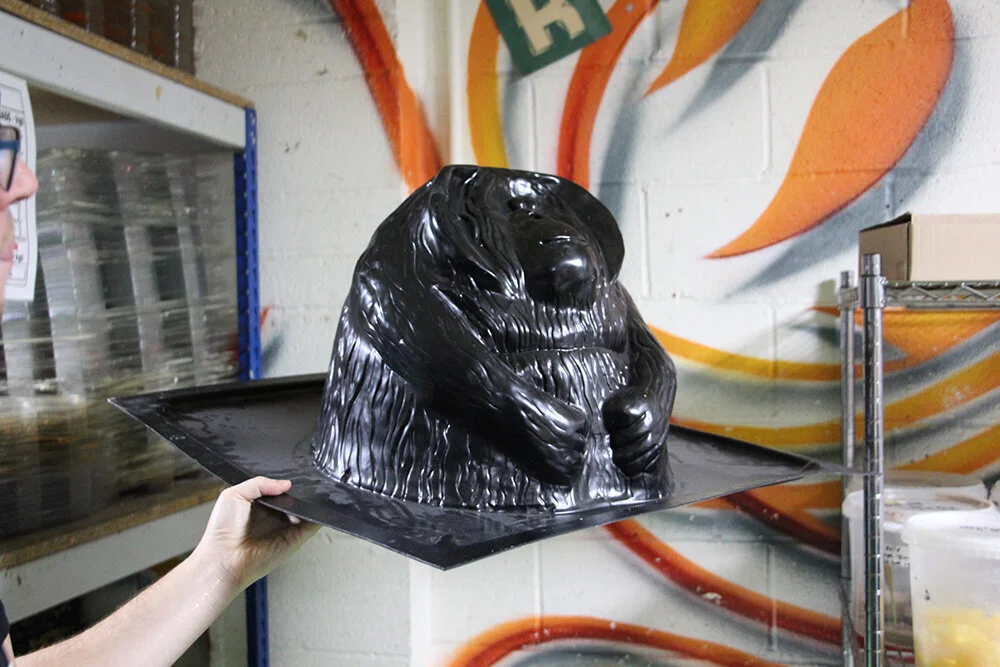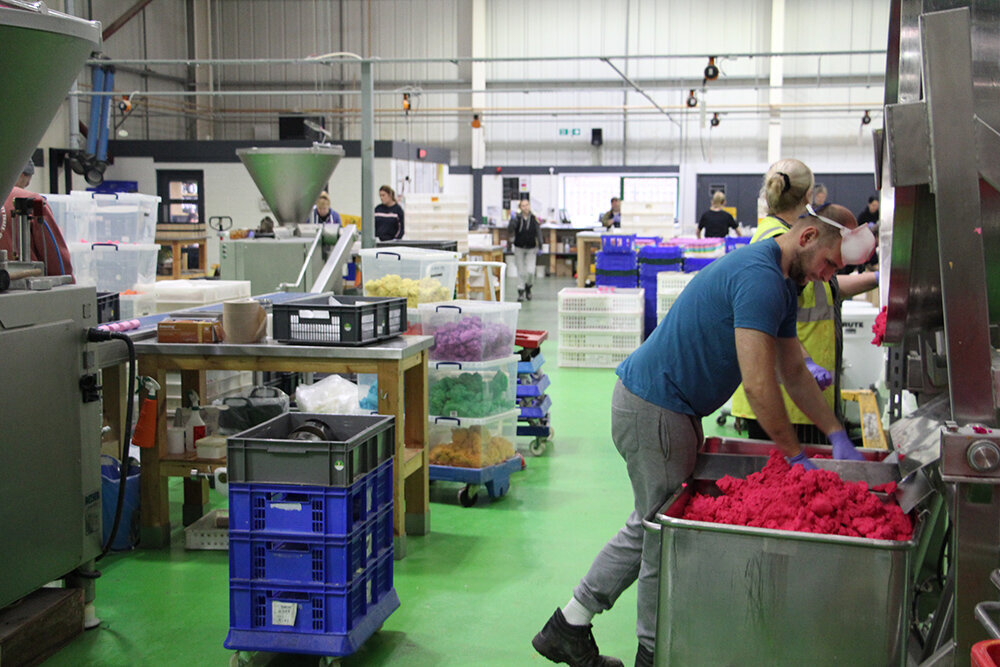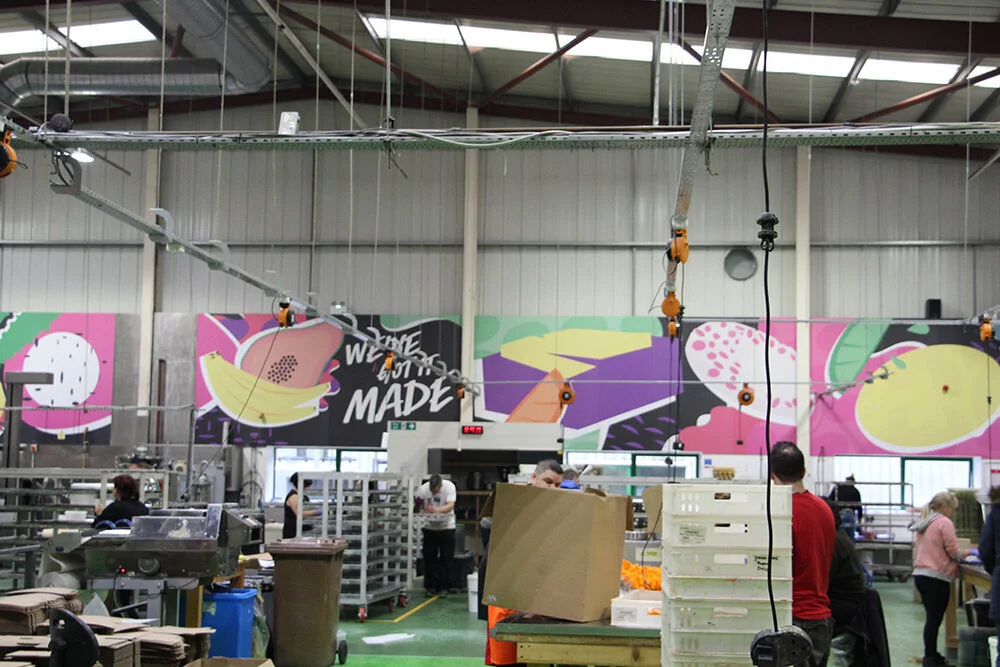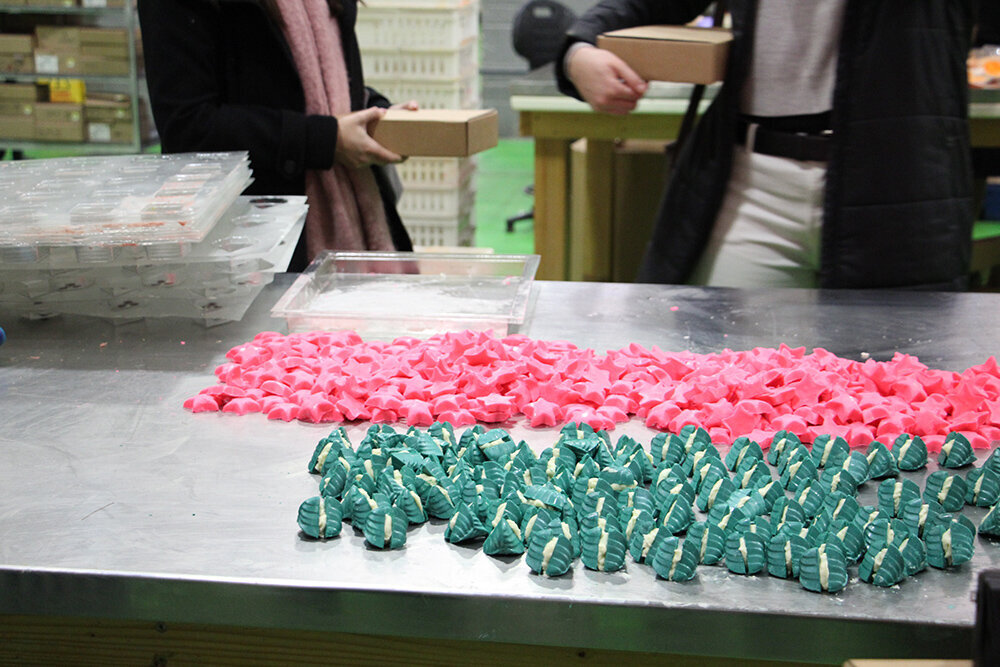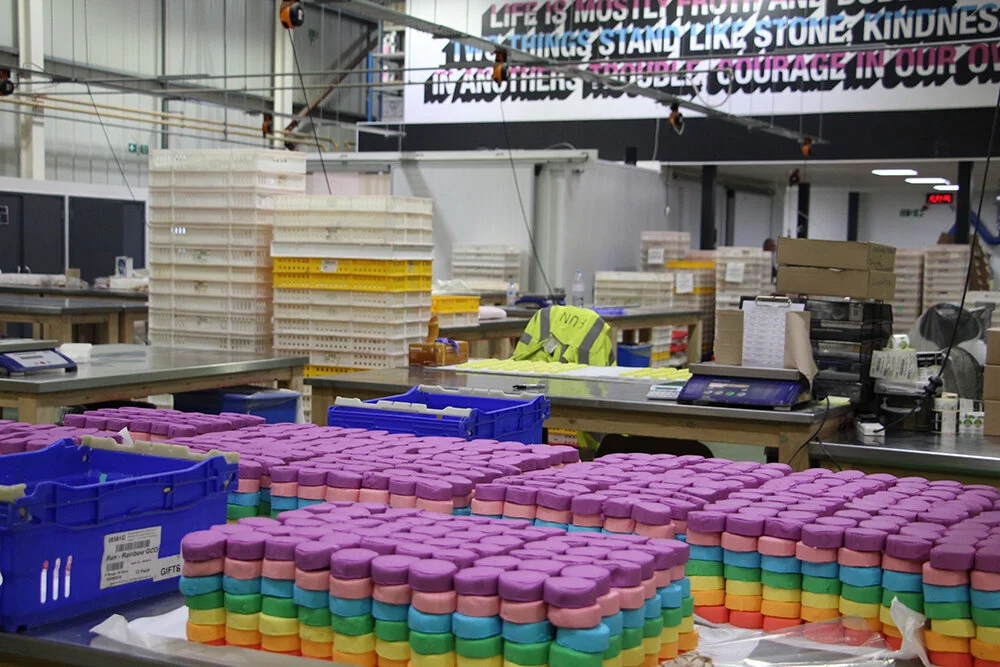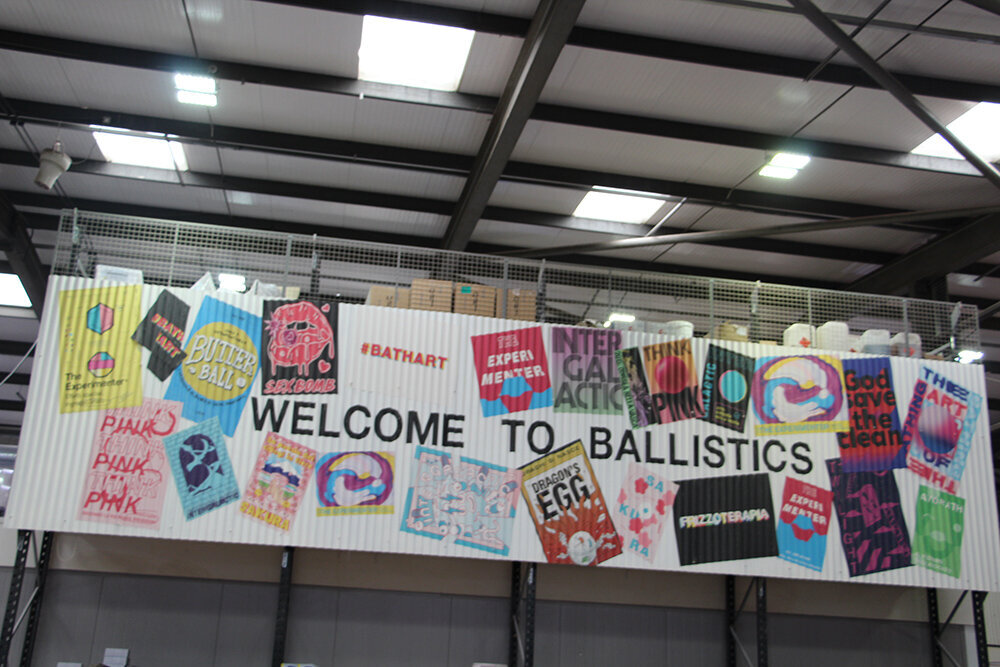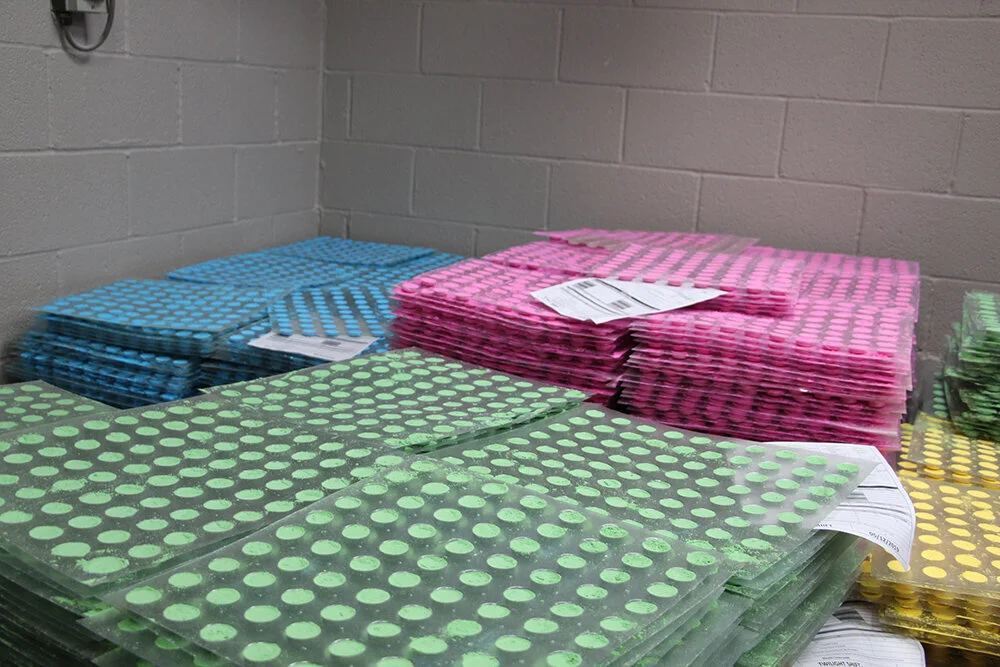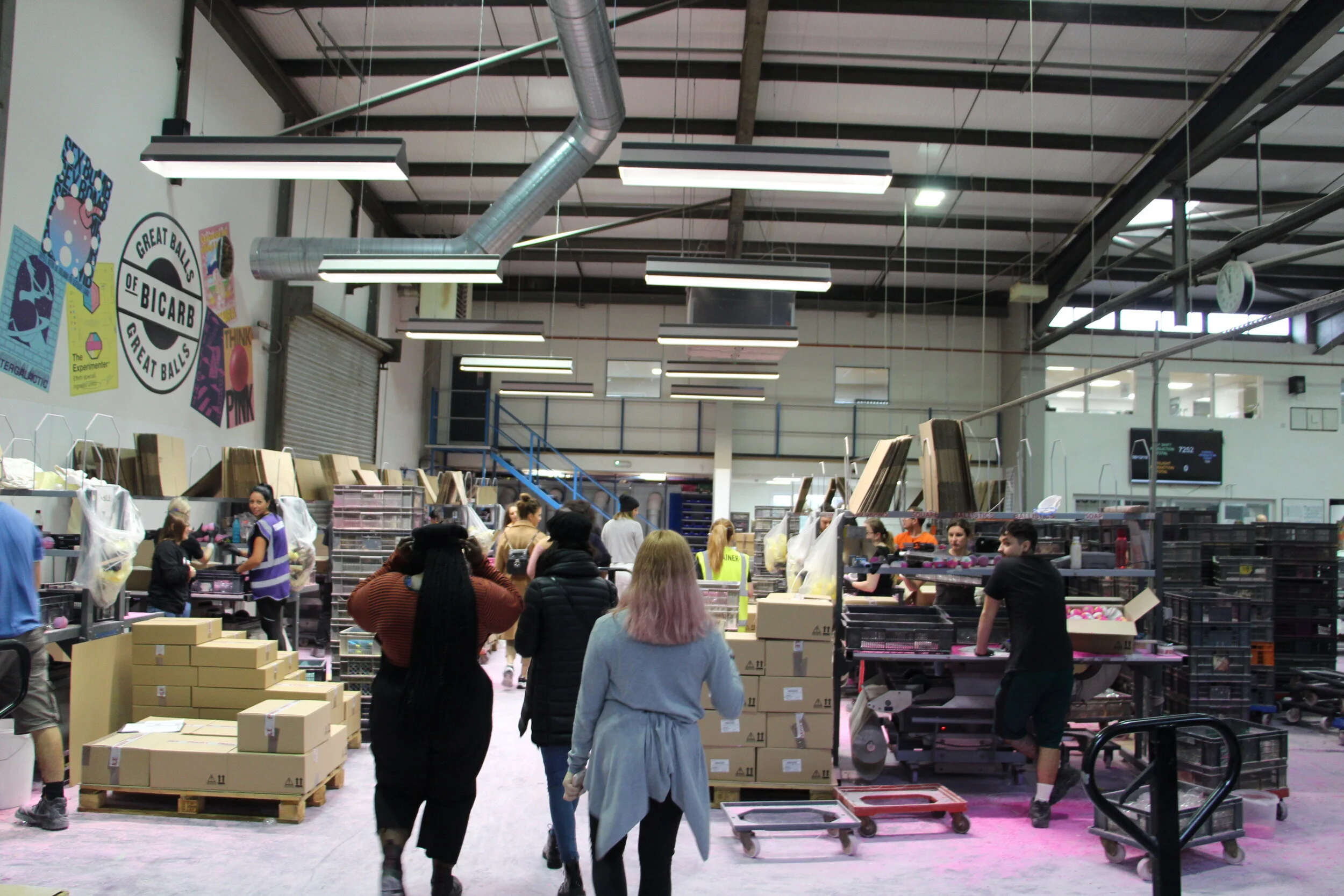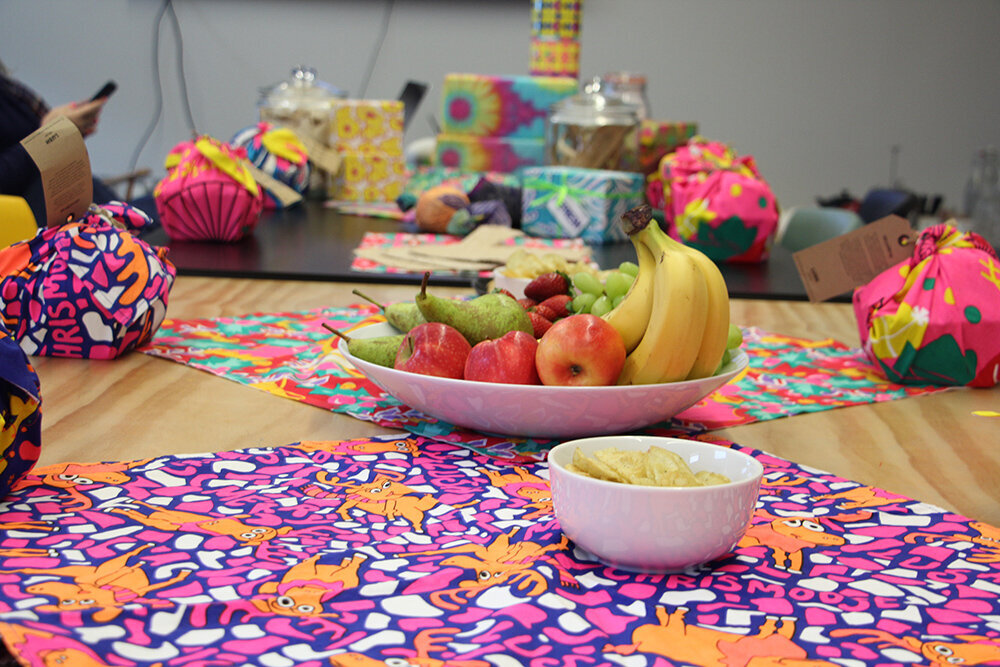Ethical Before it was Cool: The Enduring Power of Lush
Lush is a brand that needs no introduction. But here’s one anyway! This cosmetics brand, known for their epic bath products, launched in 1995, and despite its no-advertising policy and more recently silencing all UK social media channels, has quietly grown to become a cult staple on high streets and Instagram feeds all around the world. From championing natural ingredients to fighting animal testing, pioneering plastic-free initiatives to investing in ethical supply chains - there’s no doubt this British enterprise has always done business differently.
Back in December I went on my first ever press trip with a bunch of lovely influencers like Aja Barber, Stephanie Yeboah and Jill Matthews. We travelled to Poole, Dorset where Lush first began and still has many of its operations, and found out what goes on behind-the-scenes of the iconic beauty brand. You may have seen my Instagram stories (now saved on a Highlight) documenting all the exciting things we got up to, including tours of the product factories, knot wrap workshops and more, but I thought I’d expand a little here on the blog.
*This post is not sponsored, however I was gifted some products along with the travel/hotel stay etc. on the press trip.
First up, we visited some of the factories producing Lush products - and truly, it was like being Charlie in the chocolate factory. I’m not sure why, but when I buy beauty products I never really imagine them being made (unlike clothing), having very little knowledge about the process. I mean, how the hell did I think a bath bomb is so perfectly round? Convinced that most products are surely made by machine, I was so pleasantly surprised to see that Lush really lives up to its original strapline - ‘Fresh Handmade Cosmetics’.
The factories, of which there are many including Ballistics (bath bombs), Massage (anything moisturising), Soaps (allllll the soaps), Gifts (Christmas!) and Fresh (face masks, scrubs and cleansers) , are filled with people working with their hands. In fact, Lush is a huge local employer, with well over 1000 in & around Poole, and pays a living wage to everyone that works for them as well as implementing loads of wellbeing initiatives to protect the health of manual labourers. Over 150,000 products a week are sent out from just one of the factories in busy periods, each one made fresh one day, in the store the next day.
I was also pretty impressed by the sustainability of Lush’s production processes. For example, instead of those nasty plastic packing peanuts used to protect and transport goods, the company developed its own natural, biodegradable (and even edible!) alternative called ‘Eco Pops’. Made from cornstarch, these little guys (which smell like popcorn FYI) are produced in the same factory, and help save over 3 truckloads a week of plastic packaging, hugely reducing the carbon footprint of this global company.
Other great zero-waste initiatives include plastic free, biodegradable glitter used in all of Lush’s sparkly products, and an increasing number of ‘naked’ products like shower gels and shampoo bars which are sold without a pot, as well as Lush stores’ ongoing pot return-and-recycling scheme. What’s more, the plastic moulds used for creating soaps and bath bombs are reused over and over until they break, a which point they are melted down and made back into new moulds using Lush’s own closed-loop recycling scheme.
When it comes to the product ingredients themselves, Lush have committed to eliminating all animal testing, and have also sworn off habitat-destroying palm oil. Finally, they use vegan and natural ingredients wherever possible - in the ‘Fresh’ factory we saw flowers, seeds, fruit, vegetables, essential oils and even their own fresh juice bar - picture a science lab meets an organic kitchen.
It was great to be able to try out some of the factory tasks ourselves - and boy, it was way harder than it looks. While the loyal Lush staff wrapped boxes, mixed face masks and poured soaps at lightning speed, I was still proud of my meagre attempts at making a bubble bar and a bath bomb. Unfortunately, they were rejected from the assembly line, but on the bright side I got to take them home and use them in the bath!
Oh and before you ask - the smell. Imagine a Lush shop, and multiply that by 1000. With delectable scents wafting in from every corner, it’s a wonder that the skin of Poole’s residents don’t smell of Lush too. It was almost too overwhelming to us newbies, but the Lush staff were so used to it they barely flinched! When we reached the essential oils section of the soap factory and got to sniff at some industrial-strength vats, it became clear where that signature Lush aroma comes from.
Next up, we were invited into the Lush HQ on the harbour - a Pinterest-worthy office if I’ve ever seen one. Here we met some buyers and designers who talked us through Lush’s packaging - a huge area of both the bold brand identity and the ethical values of the business.
You may have heard of ‘knot wraps’ - squares of colourful fabric made for wrapping Lush products, inspired by the ancient Japanese ‘Furoshiki’ method. You can buy these in Lush stores and online (and you can even swap out your old ones for new) as an alternative to wrapping paper, and lots of Lush gift sets come ready-wrapped in fabric to eliminate any plastic packaging. The brand celebrated 10 years of knot wraps by sharing their history and impact with the group, and the textiles geek in me was immediately captivated by the efforts to create an entire mini-industry that is not only sustainable, but regenerative.
The company first tried to source vintage cloth, but the quality wasn’t up to scratch, so back in 2010 they started sourcing their own 100% organic cotton fabrics. Organic cotton is still the major fibre used in knot wraps, but they’ve also expanded into fabrics made from recycled cotton t-shirts and recycled plastic water bottles. By avoiding conventional (non-organic) cotton, Lush are saying no to genetically-modified seeds, insecticides, pesticides and excessive irrigation, which helps promote biodiversity and protects local ecosystems, as well as the health, wellbeing and financial security of farmers. Farmers, weavers and all other cogs in the supply chain (which is operated transparently; completely traceable from ‘seed to shop’) are paid directly - with no middle men - a fair living wage. Their aim is to return to more traditional farming techniques which revitalise the soil, and help repopulate the land with beneficial flora and fauna.
In terms of design, Lush’s signature bold prints and bright colours are mostly designed in-house, but also come to life through collaborations with companies like Arthouse Unlimited, a social enterprise working alongside adults with learning disabilities and complex epilepsy, and Rewrap, who create beautiful organic cotton fabric using artisan communities in India. The fabrics are then printed mostly through heat transfer printing (which saves water and helps prevent toxic pollution. Watch the documentary River Blue to find out why this is such a problem for the world’s waters).
On the trip, we had the opportunity to design our own knot wraps based on festive briefs, and also learn dozens of different tying techniques for the fabric (which I utilised this Christmas for many of my gifts - plus hair accessories for myself!), as well as explore some of the best-selling designs, including that iconic Vivienne Westwood climate action wrap, made right here in the UK.
Lush have also invested a lot in sustainable paper packaging. The raw materials used to create their gorgeous patterned papers include recycled office paper, banana fibre, and most interestingly recycled cotton t-shirts, using offcuts from Indian garment factories. My personal favourite was the hand tie-dyed Lokta papers - a traditional super-durable Nepalese paper made from the eponymous plant. Despite the digital age, paper is still in huge demand globally, and the industry creates major deforestation which is difficult to track back to the source - so it’s great to see this new revolution in recycling.
Last but not least, we explored the Lush shop in Bournemouth to try out the Lush Labs app ‘Lush Lens’ feature. This is a really cool wee gadget which allows both staff in-store with iPads, or customers with smartphones to scan any product or gift set to reveal a video showing the products in use and all the ingredients. This helps Lush shops save water and waste by reducing the need for demonstrations and samples, for example tubs full of water for bath bombs, and it’s super helpful to see how to use a product properly. It also saves on packaging as they no longer need to attach labels to ‘naked’ products'.
Here, I was gifted some goodies which was fabulous - my favourites so far have been the Gritty Polliti exfoliating cleansing balm and the Twilight bath bomb. I also went back and bought the Bubblegum lip scrub and the Amazon Primer, as these are my go-to everyday Lush favourites, I was also excited to hear about some upcoming new product launches for Valentine’s Day and Mother’s day, as well as some new hair products (cough cough, colour!) which I’m sure will create an Insta-storm any day now.
Overall, I had a whale of a time on the trip. The people were lovely, including all the incredibly hospitable Lush staff & PR team and the amazing influencers I was thrilled to meet in person. As a tiny wee blogger here in Edinburgh, it feels pretty unreal to be recognised by such an amazing ethical brand, and just goes to show that numbers aren’t everything - opportunities come to those with genuine passion who align with authentic values - I’m so grateful to be recognised for that. Remember, a brand calling itself ‘green’, ‘ethical’ or ‘sustainable’ doesn’t really mean anything - brands need to not just minimise their impact, but leave the environment and the people who work for them even better than they were before it started. Let’s make 2020 the year we support business that does good.
Explore some more of my snaps from the press trip by clicking through the carousel below, and head over to my Instagram highlight for videos:








